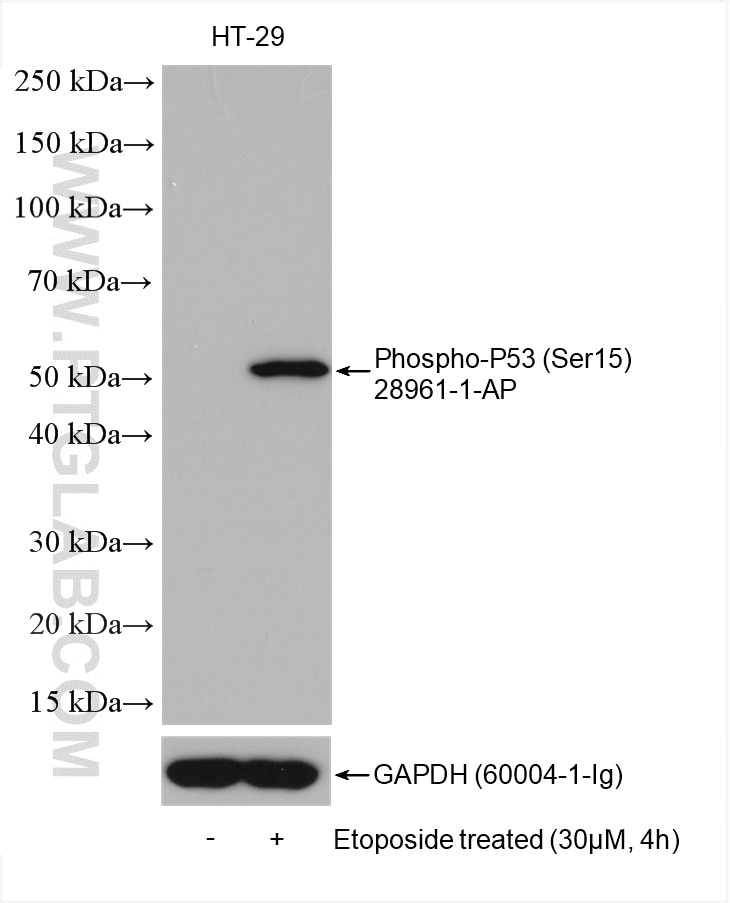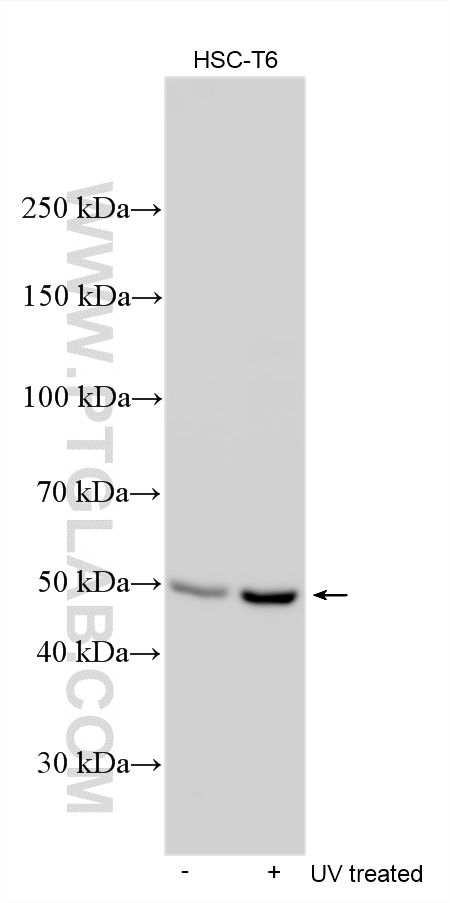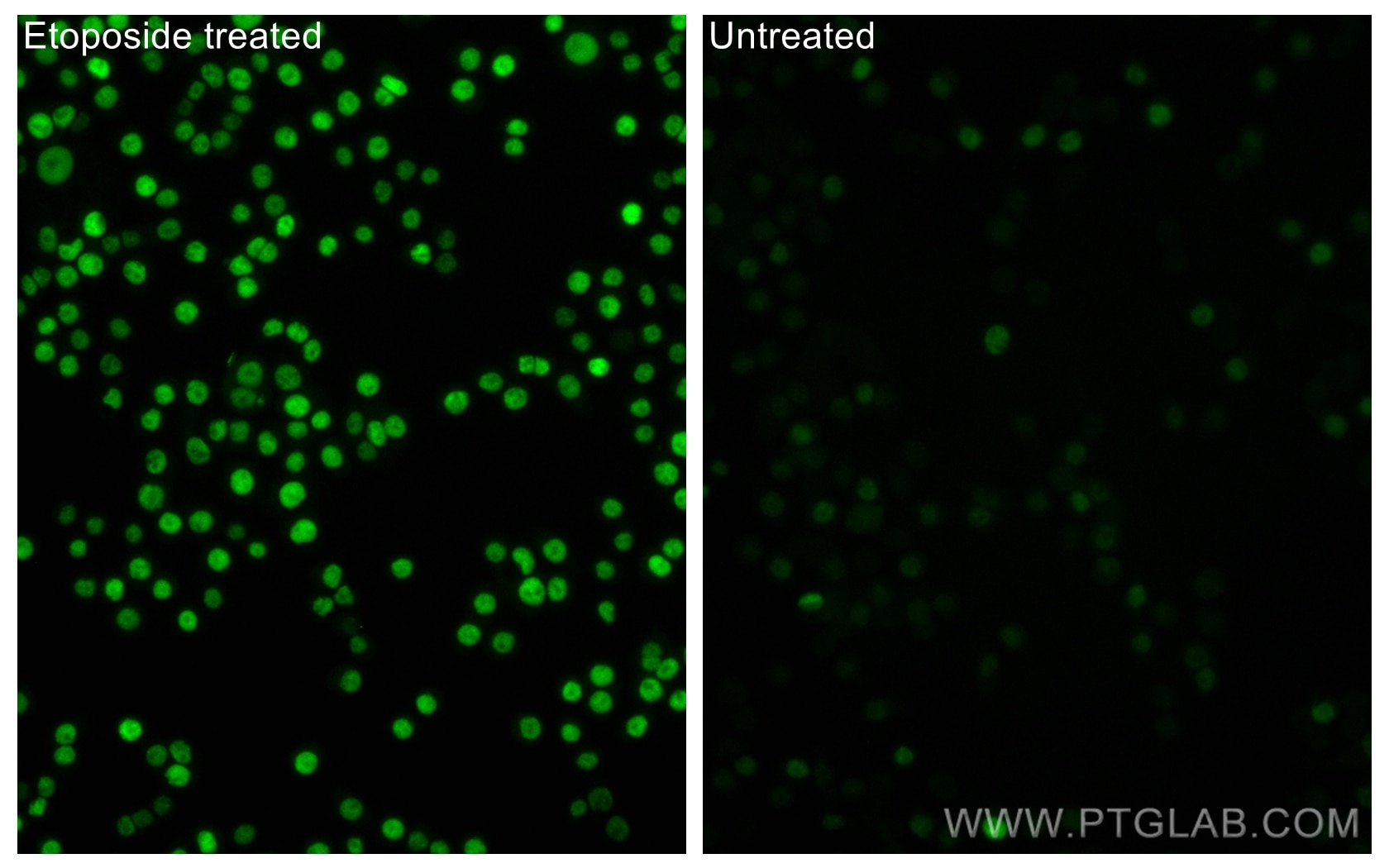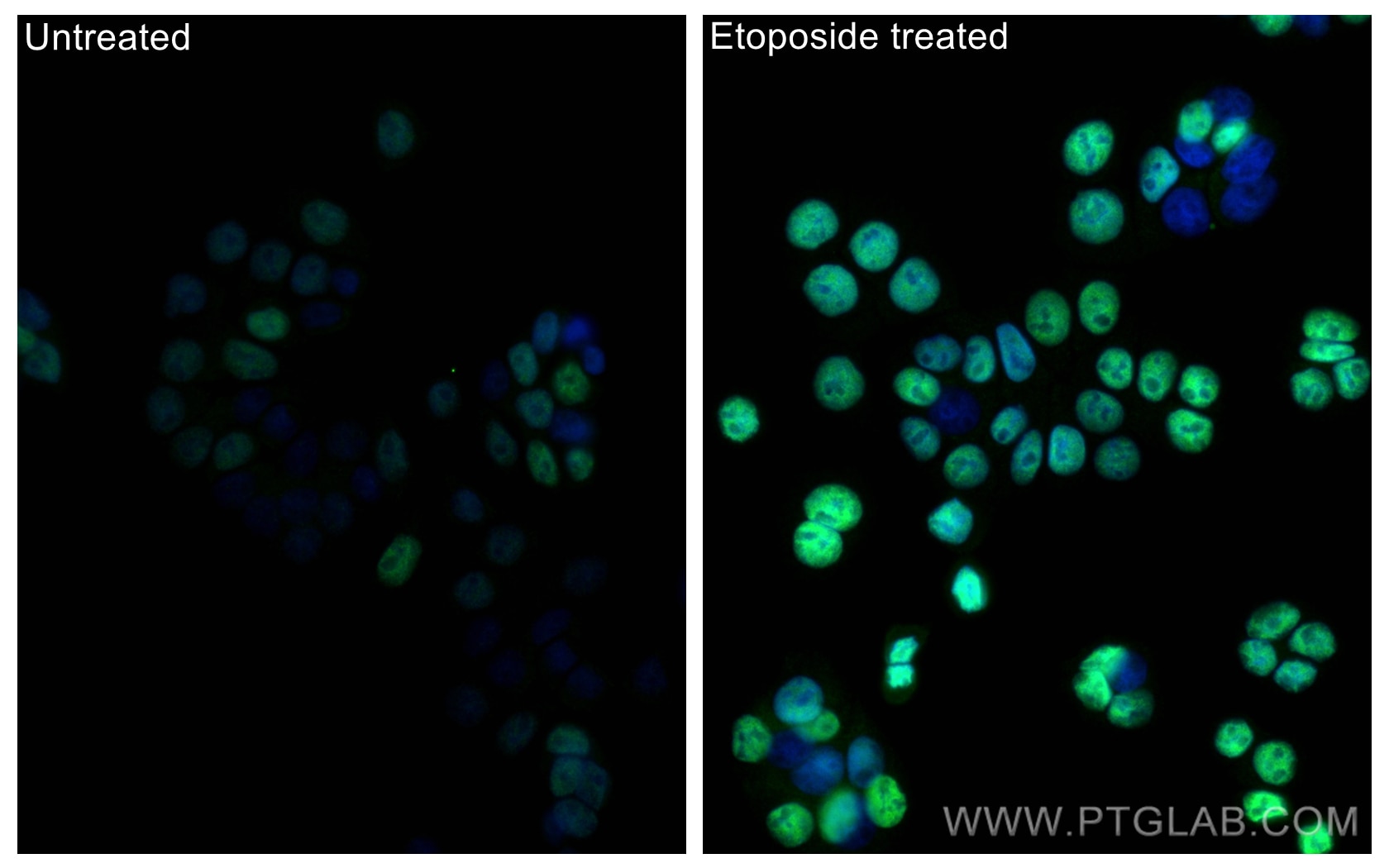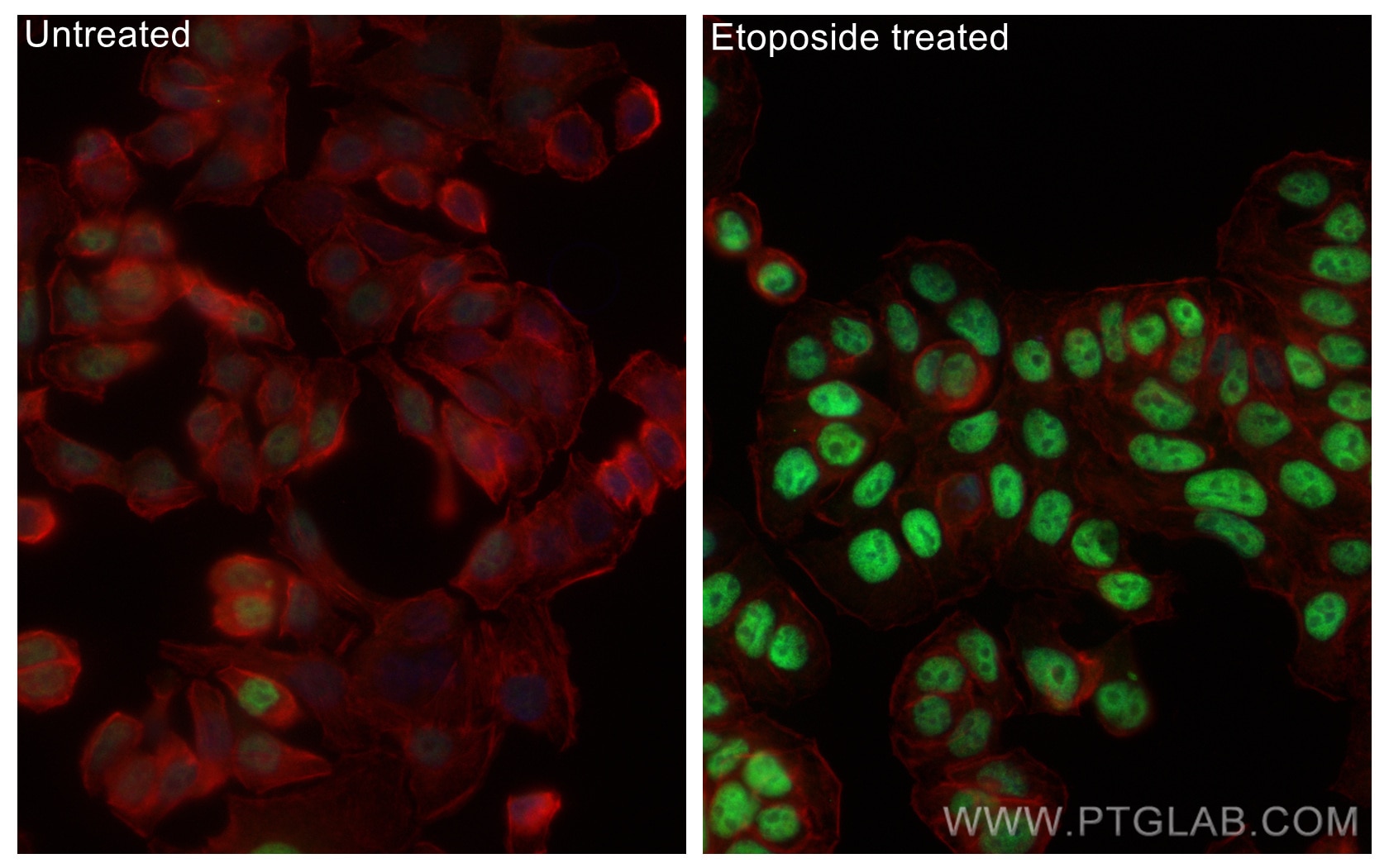Validation Data Gallery
Tested Applications
| Positive WB detected in | etoposide treated HT-29 cells, HSC-T6 cells, UV treated HSC-T6 cells |
| Positive IF/ICC detected in | etoposide treated HT-29 cells, HT-29 cells |
Recommended dilution
| Application | Dilution |
|---|---|
| Western Blot (WB) | WB : 1:1000-1:4000 |
| Immunofluorescence (IF)/ICC | IF/ICC : 1:200-1:800 |
| It is recommended that this reagent should be titrated in each testing system to obtain optimal results. | |
| Sample-dependent, Check data in validation data gallery. | |
Published Applications
| WB | See 34 publications below |
| IHC | See 2 publications below |
| IF | See 2 publications below |
Product Information
28961-1-AP targets Phospho-P53 (Ser15) in WB, IHC, IF/ICC, ELISA applications and shows reactivity with human, rat samples.
| Tested Reactivity | human, rat |
| Cited Reactivity | human, mouse |
| Host / Isotype | Rabbit / IgG |
| Class | Polyclonal |
| Type | Antibody |
| Immunogen |
Peptide 相同性解析による交差性が予測される生物種 |
| Full Name | tumor protein p53 |
| Calculated molecular weight | 44 kDa |
| Observed molecular weight | 53 kDa |
| GenBank accession number | BC003596 |
| Gene Symbol | P53 |
| Gene ID (NCBI) | 7157 |
| RRID | AB_2881236 |
| Conjugate | Unconjugated |
| Form | |
| Form | Liquid |
| Purification Method | Antigen affinity purification |
| UNIPROT ID | P04637 |
| Storage Buffer | PBS with 0.02% sodium azide and 50% glycerol{{ptg:BufferTemp}}7.3 |
| Storage Conditions | Store at -20°C. Stable for one year after shipment. Aliquoting is unnecessary for -20oC storage. |
Background Information
The p53 tumor suppressor protein plays a major role in cellular response to DNA damage and other genomic aberrations. Activation of p53 can lead to either cell cycle arrest and DNA repair or apoptosis . DNA damage induces phosphorylation of p53 at Ser15 and Ser20 and leads to a reduced interaction between p53 and its negative regulator, the oncoprotein MDM2. p53 can be phosphorylated by ATM, ATR, and DNA-PK at Ser15 and Ser37. Phosphorylation impairs the ability of MDM2 to bind p53, promoting both the accumulation and activation of p53 in response to DNA damage.
Protocols
| Product Specific Protocols | |
|---|---|
| IF protocol for Phospho-P53 (Ser15) antibody 28961-1-AP | Download protocol |
| WB protocol for Phospho-P53 (Ser15) antibody 28961-1-AP | Download protocol |
| Standard Protocols | |
|---|---|
| Click here to view our Standard Protocols |
Publications
| Species | Application | Title |
|---|---|---|
Adv Sci (Weinh) Transgelin Promotes Glioblastoma Stem Cell Hypoxic Responses and Maintenance Through p53 Acetylation | ||
Aging Cell Excessive processing and acetylation of OPA1 aggravate age-related hearing loss via the dysregulation of mitochondrial dynamics | ||
Acta Pharmacol Sin Exosomes are involved in total body irradiation-induced intestinal injury in mice. | ||
Cancer Cell Int Marine natural product Methyl mycophenolate inhibits gastric cancer growth through regulating p53 and the downstream pathways | ||
J Nutr Biochem Lycopene suppresses gastric cancer cell growth without affecting normal gastric epithelial cells | ||
Clin Epigenetics Comprehensive comparison between azacytidine and decitabine treatment in an acute myeloid leukemia cell line |

